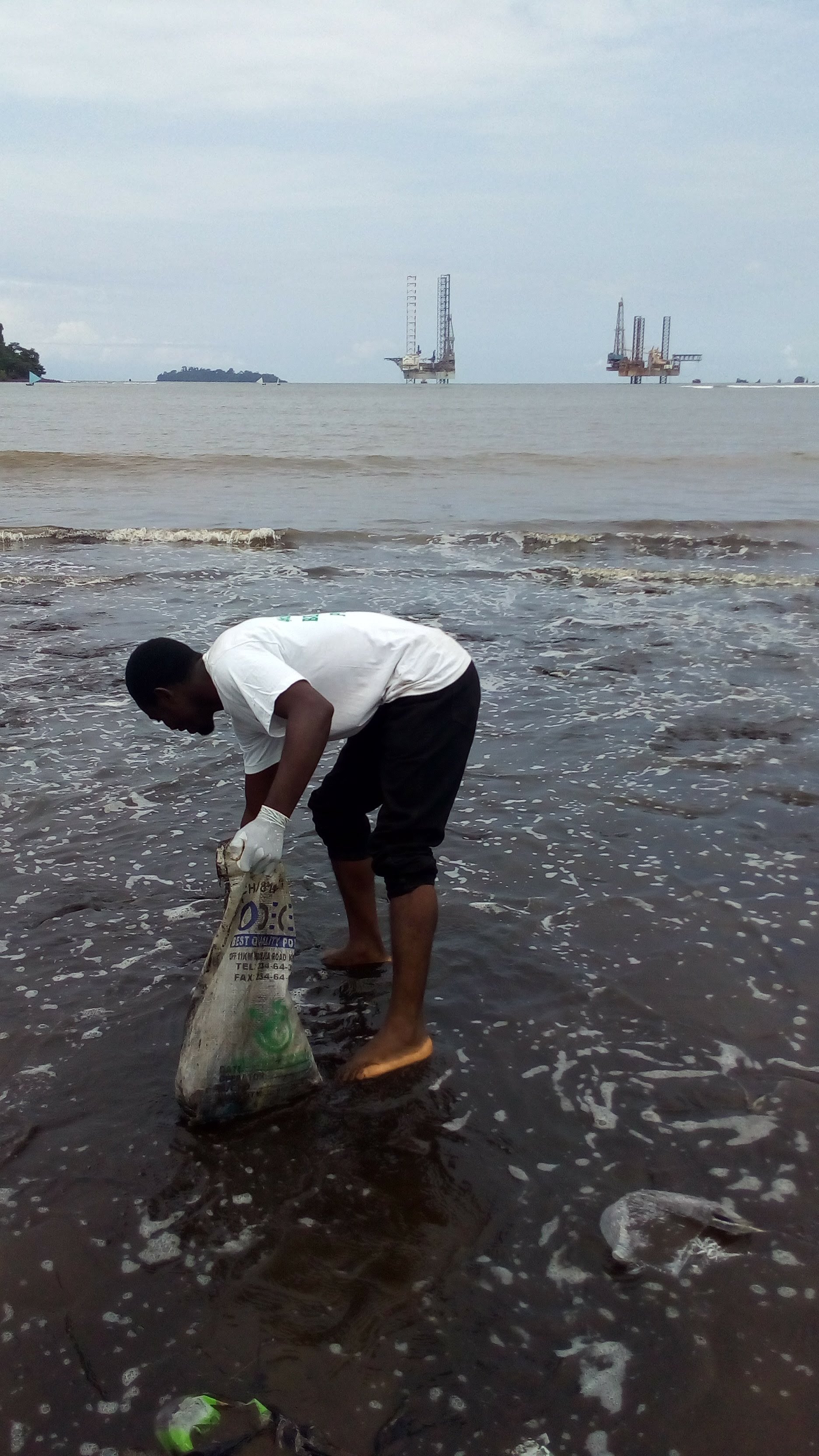Growing up, Forbi Perise watched a lot of National Geographic and Discovery Channel, learning about the vastness of the planet and the intricacies of ecosystems.
He also learned about the budding movement against plastic waste and the many activists taking action to solve the issue globally.
All around him in his town of Buea, Cameroon, he witnessed the natural landscape get overrun with plastic bottles and wrappers — so he decided to do something about it.
Buea's plastic problem is structural in nature. There are very few plastic collection and recycling companies throughout Cameroon and trucks simply don't travel to Buea to collect plastic waste very often. For many families, hiring trucks to collect plastic waste is too expensive in a country where nearly a quarter of the population lives below the poverty line.
As a result, plastic piles up behind houses and alongside roads.
"In most of the waterways and beaches, you find a lot of plastic pollution," Perise told Global Citizen.
In 2018, he contacted one of the only recycling facilities in the country and asked what it would take for them to visit Buea to collect trash.
"They gave us insurance that they would take it if we collected a lot of plastic," said Perise, 23, who now studies environmental science at the University of Buea.
He went door to door throughout his community, ultimately visiting more than 200 homes, and collected more than 5,000 plastic bottles.
He informed the plastic collection agency about his haul and they agreed to stop by — but it took them three months to arrive.

Perise learned two things from the experience: First, his dad didn't exactly enjoy having thousands of plastic bottles heaped in the front yard for months on end.
And second, he was going to have to build a mass movement to combat plastic pollution and generate structural change.
Since then, Perise has launched plastic collection contests in Buea, organized various beach clean-ups, and has traveled throughout the country, giving lectures and hosting workshops on the problem of plastic waste and environmental issues more broadly.
Now Perise is participating in the United Nations' World Ocean Day 2020 on June 8 to share his knowledge and organizing experience.
His lead-by-example approach earned him the nickname "The Plastic Man," he said, and his community-building efforts opened his eyes to larger conservation challenges.
One day while leading a beach clean-up, Perise spotted a dead turtle tangled in plastic on the sand.
He asked local fishermen about it and they said that it's a common sight. Globally, more than 8 million tons of plastic enter waterways each year. Once in the ocean, plastic causes extensive harm to marine animals. Animals get tangled in and suffocated by plastic, accidentally swallow plastic and face digestive and health problems, and consume vast quantities of microplastics.
It's a crisis that spurred Perise to double-down on his beach-cleaning initiatives.

The biggest challenges he faces are a lack of resources and institutional support, he said. Perise hopes to connect with engineers who can build local recycling solutions and connect with international organizations that can help him with Cameroon's plastic waste problem.
The more he raises awareness, the more likely it becomes that the government will step in to build more recycling facilities.
Currently, Cameroon melts most of the plastic it collects and turns it into asphalt for roads, which may seem like a sustainable solution, but the methods used make it a hazardous form of plastic management that releases noxious fumes and particles into the air, according to the Intercept.
Other local activists have turned plastic waste into boats and other upcycled commodities.
For Perise, the sky is the limit for sustainable solutions to plastic waste.
One thing he's certain about: Youth activists like him are ready to change the status quo.
"If young people get an appropriate education on what it takes to preserve the ocean, air, and land, then we'll do better," he said.
"Investing in young people is vital for protecting the planet."